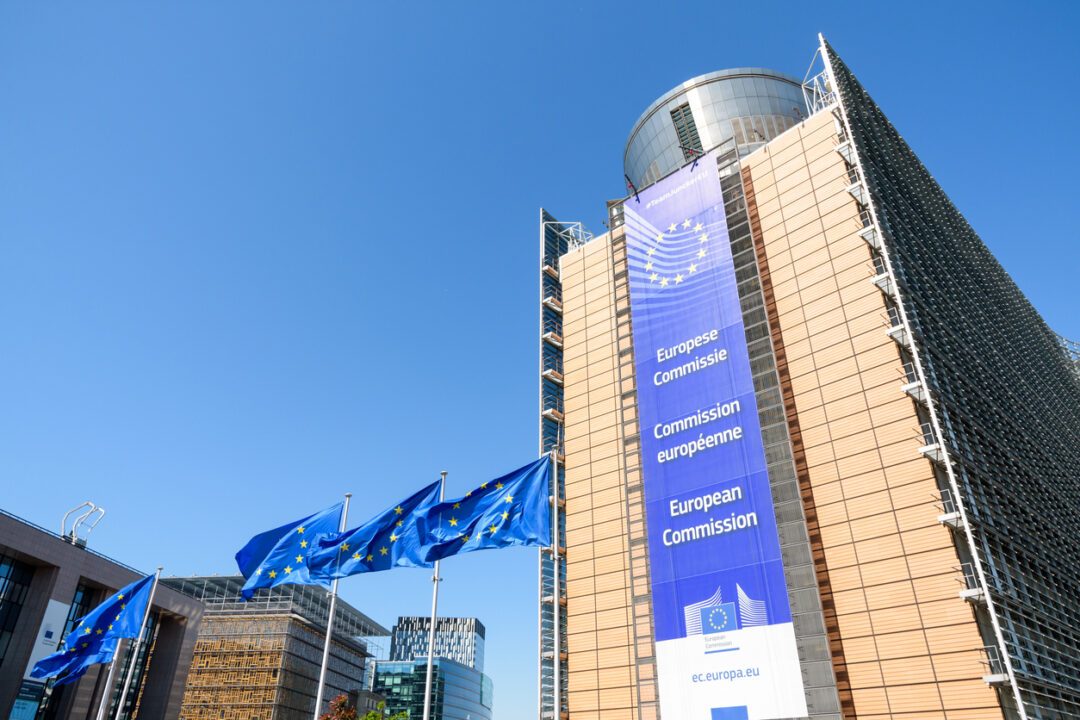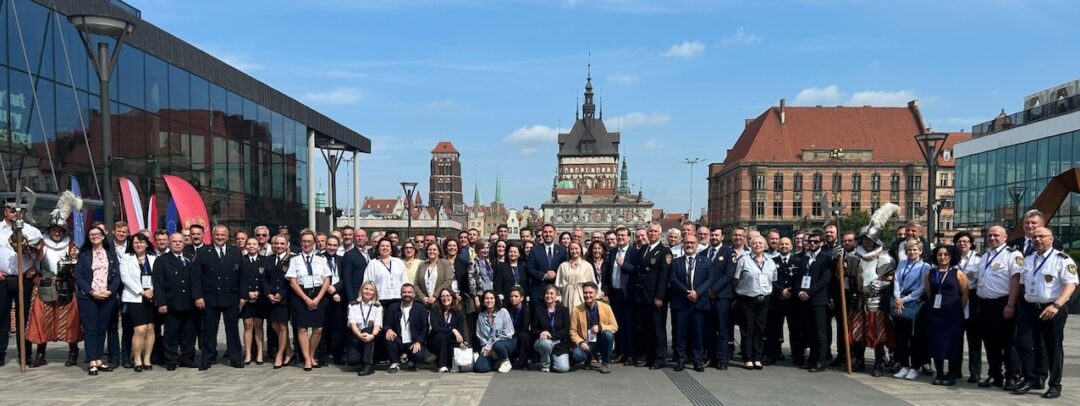June 2021 – How to benefit from EU funding? What new opportunities are provided for local and regional authorities under the EU budget for the period 2021-2027? What are the relevant funding programmes and what is their amount? How to apply? These were some of the questions that Efus covered in a web conference it organised on 25 June on EU funding opportunities and practical tips for local and regional authorities in the field of urban security. Efus organised this event as part of its work in the Partnership on Security in Public Spaces of the Urban Agenda for the EU (Action 2 and 4).
An overview of the EU’s financial programming period for 2021-2027
The EU’s budget for the period 2021-2027 is composed of a multiannual financial framework (MFF) and the so-called Next Generation EU temporary recovery instrument. This latter instrument aims to facilitate the social and financial recovery from the Covid-19 pandemic. Together, the EU’s long-term budget (MFF) for 2021-2027 and the Next Generation EU instrument account for around €1,824.3 billion, higher than the previous 2014-2020 budget, which stood at €1,087 billion1.
This budget will finance five priorities for Europe: smarter; greener and zero-carbon; more connected; more social, and closer to citizens. For local and regional authorities, one of the most relevant priority objectives regarding urban security is number 5, “a Europe closer to citizens supporting locally-driven development strategies and sustainable urban development across the European Union,” whose specific objective number 1 is: “fostering the integrated social, economic and environmental development, cultural heritage and security in urban areas.”
Based on these priority areas, the overall budget is broken down into thematic budget lines. Regarding urban security we can highlight the following lines: ‘Cohesion, resilience and values’; ‘Migration and Border Management’, and ‘Security and Defence’.
Different types of funds
Under these thematic budget lines and the general five priorities, specific funding programmes are set up. Local and regional authorities can benefit from these funds both directly, via sectoral funds, or indirectly through structural funds.
Indirect management in the case of structural funds implies that they are not directly managed by the European institutions but by the European Member States themselves by means of partnership agreements. This means that national and regional authorities are responsible for granting them through the so-called “managing authorities”. For more information we invite local and regional authorities to identify the relevant managing authorities in their Member States and turn to them to gain up-to-date knowledge on the relevant financial opportunities.
Cohesion Policy funds (European Regional Development Fund (ERDF), Cohesion Funds and European Social Fund+ (ESF+)) aim to support locally-led development strategies.
A new and important aspect of the allocation of these funds is the appearance of policy objective 5 that aims to foster urban security at the local level. This objective means that local and regional authorities have the possibility to define tailor made security-related actions under this funding mechanism.
Unlike structural funds, sectoral funds are managed by the European institutions and directly allocated, for example, to local and regional authorities in the framework of thematic funding programmes. Two forms of funding are available under the sectoral funds: grants and contracts. Local and regional authorities may apply for funding for thematic European projects on the Funding and Tenders portal of the European Commission.
Efus constantly monitors the calls for proposals for EU co-financed projects so that member local and regional authorities can apply to lead a thematic project, find partners for a European project, or become a member of a consortium.
The most relevant thematic funding programmes for local and regional authorities in the field of urban security are the following: Asylum and Migration Fund; Internal Security Fund; Horizon Europe framework programme for research and innovation (Pillar 2 Thematic cluster 2 ‘Inclusive Society’ and 3 ‘Civil Security for Society’); Justice programme (with its Citizens, Equality, Rights and Values programme); Erasmus+ programme for education, training, youth and sport.
Moreover, local and regional authorities can also benefit from the funding instruments proposed by the European Investment Bank.
Recommendations, tips and tricks
Based on the results of projects launched in the framework of the former financial period (2014-2020), some practical recommendations can be formulated for local and regional authorities who wish to be part of an EU-co financed project, such as finding the right partnership2; defining clear and measurable project outputs and results; highlighting the project’s innovative and unique character that gives it added value; ensuring the project’s transferability; making use of an early start; ensuring integrated and participative approaches; thinking outside of your region as challenges in security know no borders.
As an example of a project’s ‘innovative and unique character’ we may highlight BeSecure-FeelSecure (BSFS), which is led and implemented by the Municipality of Piraeus (GR). As a partner in the project, Efus provides BSFS with EU-level practices and know-how and ensures the dissemination of the project’s results and the transferability of its innovative practices. The BSFS project’s innovative character lies in its holistic approach as it aims to develop tools and strategies that are to be used both in the physical and cyber space in order to reinforce urban security by providing a framework that focuses on crime prevention and the enhancement of real and perceived security.
When it comes to ‘making use of an early start’ the ToNite project, implemented by and in the City of Turin (IT), in which Efus is a partner, was showcased during the web conference. The project seeks to enhance the perception of urban safety at night time through collaborative policies based on social empowerment and the active participation of residents and stakeholders. Due to an early start, and in spite of the pandemic situation, all planned project activities were completed.
Concerning the recommendation ‘Ensuring integrated and participative approaches’ the Efus-led Secu4All project was presented as an example. The project aims to empower local and regional authorities with theoretical knowledge and practical tools to ensure the security of public spaces and the protection of soft targets (i.e. sports venues, shopping centres, schools…) against potential threats. One of the project’s key pillars is to cooperate with a broad range of local security stakeholders (public and private) to tackle a complex challenge in an integrated manner.
Participants’ feedback and next steps
An important part of the web conference’s content was elaborated (by expert Thijs Fikken) in the framework of Action 23 of the Partnership on Security in Public Spaces of the Urban Agenda for the EU. At the end of the event, participants filled out a feedback questionnaire designed under Action 4 of the Partnership, which will allow Efus and the Partnership to further adapt the content of the thematic session to the needs of local and regional authorities. A follow up session will be organised in the framework of Efus’ international Security Democracy and Cities conference, in Nice (20-22 October), where the results of the Partnership’s six actions will also be showcased.
> For further information and for the upcoming results and outputs we invite all interested partners to consult the European Commission’s FUTURIUM webpage.
1See: https://www.consilium.europa.eu/en/policies/the-eu-budget/long-term-eu-budget-2021-2027/#:~:text=EU%20leaders%20agree%20on%20the,the%20digital%20and%20green%20transitions and
https://ec.europa.eu/info/strategy/eu-budget/long-term-eu-budget/2014-2020/funding-programmes_en
2Involve local governments, research organisations, NGOs and SMEs; each partner should cover different specialisations that are relevant for your project.
3Action 2 – Recommendations on EU security strategy, multi-level, participatory and innovative governance and funding





